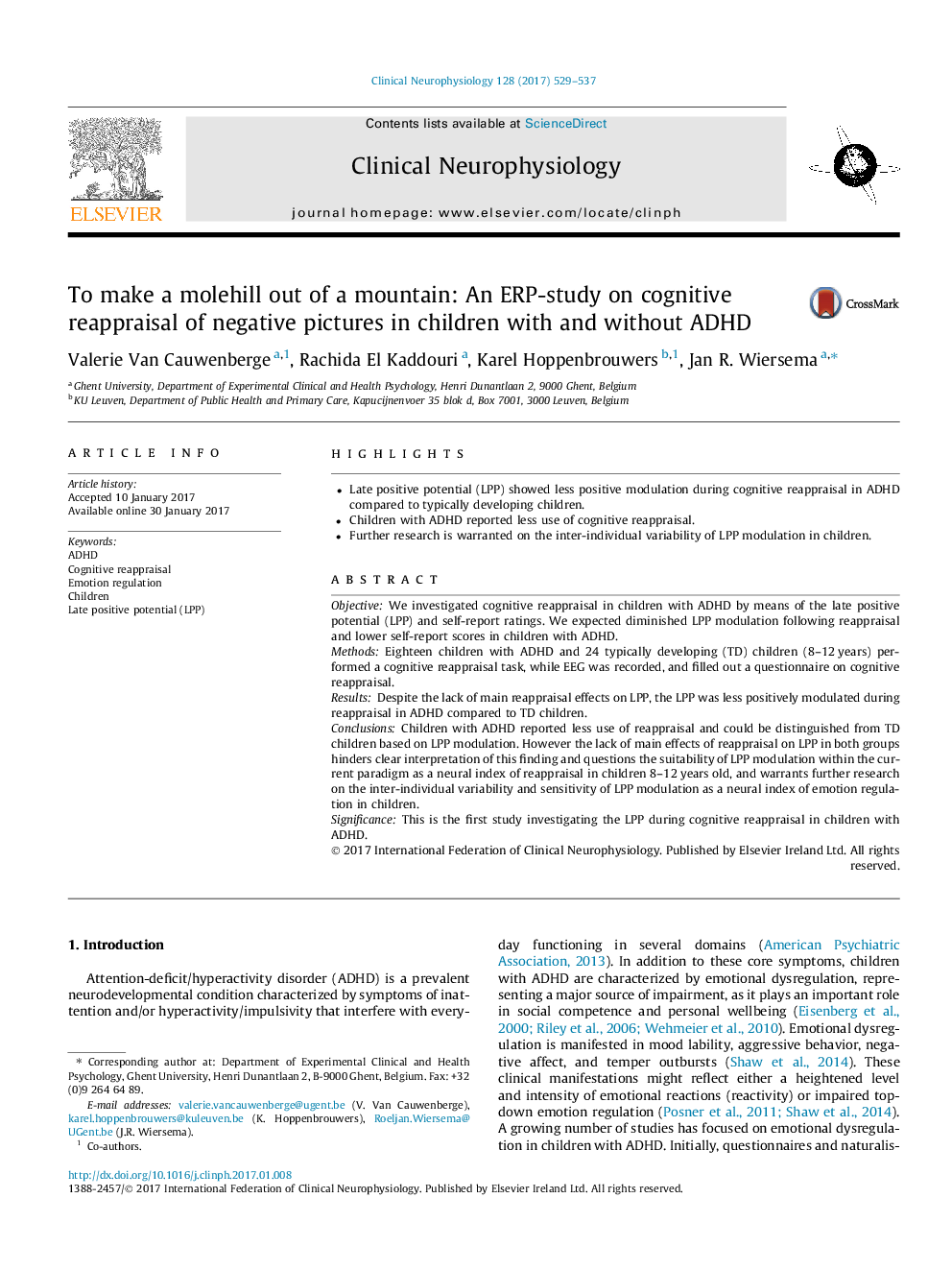| Article ID | Journal | Published Year | Pages | File Type |
|---|---|---|---|---|
| 5627643 | Clinical Neurophysiology | 2017 | 9 Pages |
â¢Late positive potential (LPP) showed less positive modulation during cognitive reappraisal in ADHD compared to typically developing children.â¢Children with ADHD reported less use of cognitive reappraisal.â¢Further research is warranted on the inter-individual variability of LPP modulation in children.
ObjectiveWe investigated cognitive reappraisal in children with ADHD by means of the late positive potential (LPP) and self-report ratings. We expected diminished LPP modulation following reappraisal and lower self-report scores in children with ADHD.MethodsEighteen children with ADHD and 24 typically developing (TD) children (8-12Â years) performed a cognitive reappraisal task, while EEG was recorded, and filled out a questionnaire on cognitive reappraisal.ResultsDespite the lack of main reappraisal effects on LPP, the LPP was less positively modulated during reappraisal in ADHD compared to TD children.ConclusionsChildren with ADHD reported less use of reappraisal and could be distinguished from TD children based on LPP modulation. However the lack of main effects of reappraisal on LPP in both groups hinders clear interpretation of this finding and questions the suitability of LPP modulation within the current paradigm as a neural index of reappraisal in children 8-12Â years old, and warrants further research on the inter-individual variability and sensitivity of LPP modulation as a neural index of emotion regulation in children.SignificanceThis is the first study investigating the LPP during cognitive reappraisal in children with ADHD.
